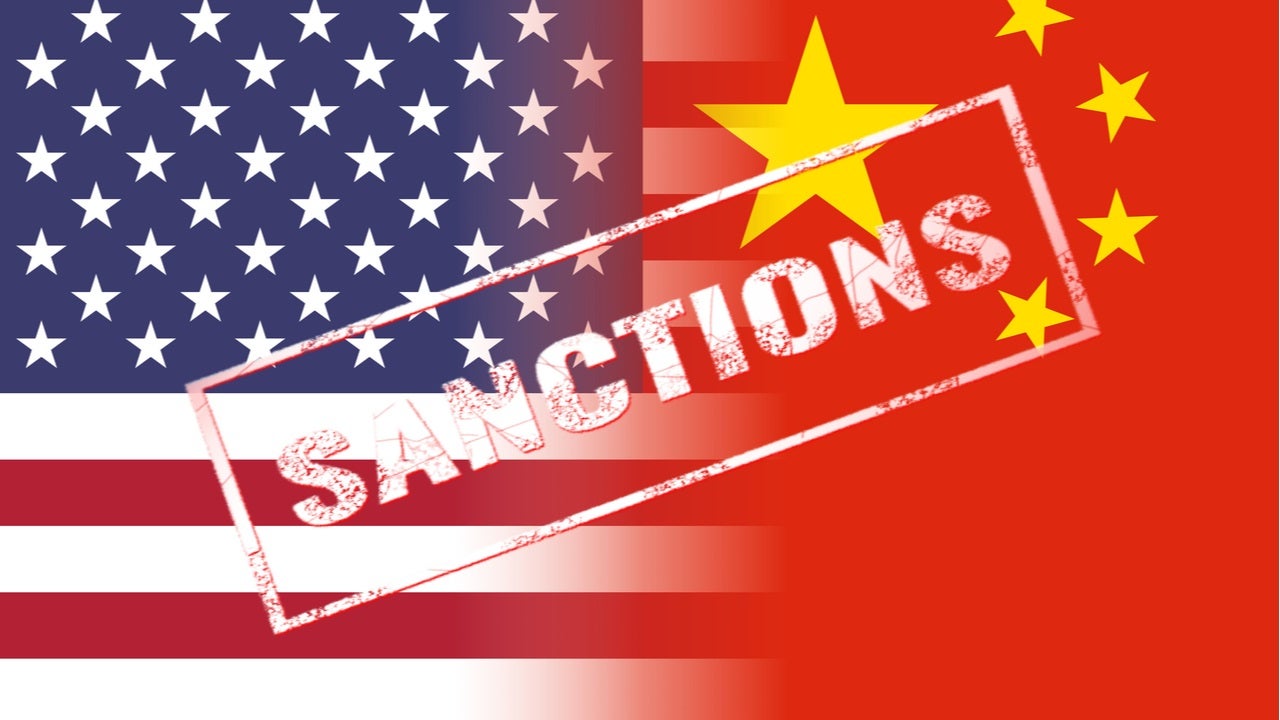
The US had imposed specific sanctions on China in 2018 citing state-sanctioned technology theft and other unfair practices. A report from the World Trade Organisation (WTO) has noted that the sanctions are inconsistent with international trade laws as they are targeted at a single country, macroeconomic influencers share their views on the COVID -19 impact.
Christophe Barraud
Economist Christophe Barrauds shared an article on the WTO report that the sanctions imposed by the US on China violate international trade rules.
The US had imposed additional duties on a range of products from China, following which the latter filed a complaint with the WTO claiming that they were inconsistent with the General Agreement on Tariffs and Trade 1994 (GATT). The US in its response to the complaint had noted that the additional duties imposed were essential to protect public morals.
The WTO report noted that the sanctions were inconsistent with the GATT as they were specifically imposed only on China. The report further stated that the US had not issued substantial evidence that the products on which additional duties were imposed would protect the public morals objective.
🌎 🇺🇸 🇨🇳 #WTO panel issues report regarding US tariffs on Chinese goods – Statementhttps://t.co/OZuCqY4CHW
How well do you really know your competitors?
Access the most comprehensive Company Profiles on the market, powered by GlobalData. Save hours of research. Gain competitive edge.
 Company Profile – free sample
Company Profile – free sampleThank you!
Your download email will arrive shortly
Not ready to buy yet? Download a free sample
We are confident about the unique quality of our Company Profiles. However, we want you to make the most beneficial decision for your business, so we offer a free sample that you can download by submitting the below form
By GlobalData— Christophe Barraud🛢 (@C_Barraud) September 15, 2020
Dean Baker
Dean Baker, a senior economist at the Center for Economic and Policy Research, shared an article on the expected availability of COVID-19 vaccine in China by November. He noted that if a cooperative approach to the development of a vaccine is adopted, everyone would have access to a successful vaccine.
China is developing four COVID-19 vaccines that are in the final stages of development, out of which three have been offered to essential workers for emergency use. According to the Chinese Center for Disease Control and Prevention (CDC), the vaccines may become available for use by the general public by November.
Looks like China is well ahead of us with a vaccine https://t.co/8XrQUoXLH9 This is not an issue of national pride, it is an issue of national idiocy. If we adopted a cooperative approach to development, we would all have access to the first successful vaccine.
— Dean Baker (@DeanBaker13) September 15, 2020
Jared Bernstein
Jared Bernstein, a senior fellow at Center On Budget, tweeted statistics comparing poverty rates and policies of the Federal Reserve. He noted that poverty rates in 2019 declined by 0.7% and the unemployment rate was at 3.7%. The Federal Reserve’s lower inflation rates played a major role in poverty reduction, he added.
Bernstein noted that the increase in unemployment in 2020 due to the COVID-19 pandemic has increased poverty although it was initially offset by the unemployment insurance provided by the government. Without additional fiscal support, the poverty rate in 2020 will continue to rise, he added.
A quick comment on two things you don't often hear discussed together but should be: poverty rates and the Federal Reserve. Below, I plot the change in poverty rates against the unemployment rate. In 2019, poverty fell 0.7 of a percentage point and unemp was 3.7%. pic.twitter.com/MRP1drM32J
— Jared Bernstein (@econjared) September 15, 2020
Adam Posen
Adam Posen, president of the Peterson Institute for International Economics, shared an article on how the developments in Japan can be applied to other advanced economies who are struggling to recover from the impact of the pandemic.
The article notes that Japan is experiencing a combination of low growth, inflation and interest rates, in addition to an increase in household savings. The government is expected to maintain fiscal stimulus to recover from the pandemic, a strategy that other advanced economies will likely follow and become the new normal. Injecting additional fiscal stimulus, however, is leading to higher budget deficits and debts.
New economic policy tools are essential in this scenario to revive the economy particularly those sectors that have been affected the most. The article notes that the virus should be contained and subsidies should be provided to help businesses survive. Further, central banks should focus on keeping interest rates low to tackle the problems arising out of high debts.
As countries lift lockdowns, new policy tools will be necessary. For now, policy should focus on helping affected sectors survive. Aggregate demand should be pursued assuming public health measures are taken to keep the risk of infection under control. https://t.co/RTxWUfEboR
— Peterson Institute (@PIIE) September 15, 2020
Howard Archer
Howard Archer, the chief economic adviser to EY ITEM Club, shared an article on the UK labour market. According to the latest data from the labour market report, the unemployment rate in the country is increasing with the claimant count rising by 73,700 in August to 2.7373 million.
The unemployment rate recorded a moderate increase to 4.1% in July with the rate of decline in annual earnings also stabilising after weakening over the last three months. The article noted that the labour market will play a critical role in the recovery of the UK economy. The unemployment rate is projected to increase to 8.5% by the end of 2020/early 2021 before stabilising or falling.
https://twitter.com/HowardArcherUK/status/1305852244122796035




